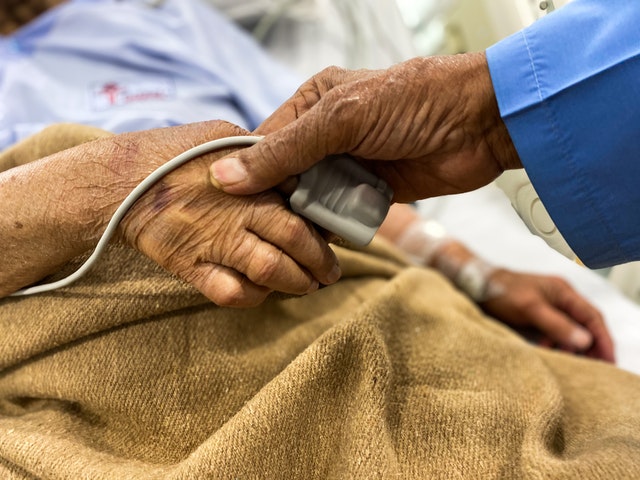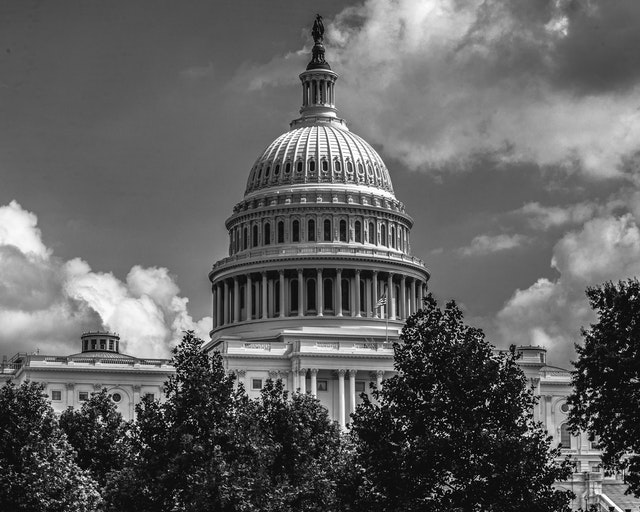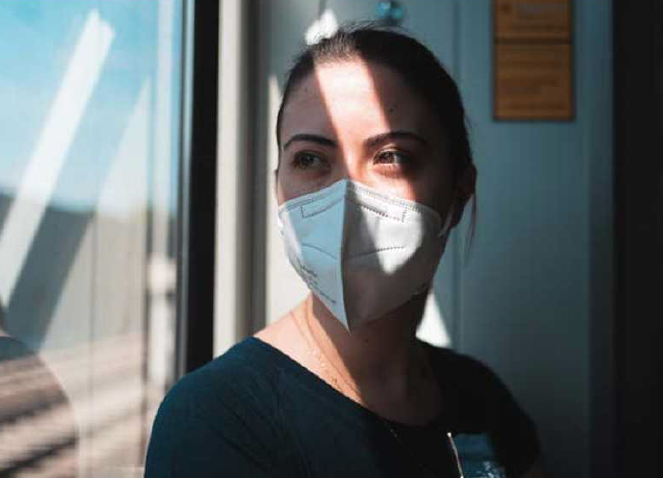From the Christ Medicus Foundation’s Catholic Journal on Religious Freedom and Healthcare
Andrew S. Kubick, Ph.D., M.A
Introduction
The moral imperative “turn from evil and do good” (Psalm 37:27) is the foundation of medical ethics. Physicians who, through a well-formed conscience, discern which acts are good and commit to them are sure to enjoy the fruits of their profession. Unfortunately, there is a pervasive assault on the rightful exercise of medical conscience that disturbs the joy of medicine and disrupts the plans of future physicians who refuse to forfeit their morals to attain their license. The following essay reaffirms the primacy of conscience in medicine and introduces a new initiative to assist medical students and physicians who are subjected to hostility because they wish to live out their faith in their profession.
Are Medical Conscience Rights Protected?
On April 8, 2021, Governor Michelle Lujan Grisham signed the Elizabeth Whitefield End-of-Life Options Act, making New Mexico the ninth state in the U.S. to enact a law that legalizes physician-assisted suicide.[1] The District of Columbia also legalized that same practice in 2016. Year after year, state legislators from across the country draft similar bills with the hope of becoming the next to legitimize this grave injustice perpetrated against people who are terminally ill. In fact, the Patients Rights Council identified eighteen new or expansion bills that were introduced just in 2021 alone.[2]
The number of states considering these bills is a clear reflection of the steady public support for physician-assisted suicide and euthanasia, which according to a 2018 Gallop poll, is 65% and 72% respectively.[3] Those respondents who favor euthanasia may finally see it come to our shores as a result of a lawsuit that was recently filed in California.[4] There, the plaintiff argues that the Americans with Disabilities Act requires the provision of euthanasia as a reasonable accommodation for people with disabilities who otherwise qualify for physician-assisted suicide but are physically incapable of self-administering the lethal dose of sedatives. Proponents of so-called “death with dignity” are becoming increasingly effective at pervading our culture with what Pope St. John Paul II called “false mercy.”[5]
The principle of informed consent, when exercised properly, ensures the patient is “informed enough to make a responsible decision, responsible enough to consent, and not under any coercion,”[6] according to medical ethicist Benjamin Freedman. Proponents of the nation’s physician-assisted suicide laws would point to the explicit language in each individual bill that protects the principle of informed consent. For example, New Mexico’s End-of-Life Options Act provides a form that states, in part:
“I have been fully informed of my diagnosis and prognosis, the nature of the medical aid in dying medication to be prescribed and the potential associated risks, the expected result and feasible alternative, concurrent and or additional treatment opportunities… I request that my health care provider prescribe medication that will end my life in a peaceful manner if I choose to self-administer the medication… I make this request voluntarily and without reservation.”[7]
Admittedly, the language of the principle of informed consent is found in New Mexico’s law. If it is upheld diligently, then the patient should be protected from coercion. They should never be forced to participate in a treatment that their conscience judges to be immoral, and rightly so. Whether or not that language expressing the principle is in fact a sufficient protection against coercion is arguable. Opponents of physician-assisted suicide claim the protections in those laws are insufficient and the Supreme Court’s majority opinion in Washington v. Glucksberg agrees with them. “We have recognized… the real risk of subtle coercion and undue influence in end-of-life situations,”[8] Chief Justice William Rehnquist wrote.

Coercion is a problem that is not exclusive to patients. Physicians and other health care providers can also be subjected to it. In this regard, New Mexico’s law is again very concerning. The law protects health care providers who refuse to participate in physician-assisted suicide should they conscientiously object to its practice; yet, it requires objecting physicians to refer their patient to another provider who will then write the lethal script.[9] This law rejects the full exercise of conscience and outright dismisses the gravity of cooperating with evil, especially for New Mexico’s Catholic physicians. And it is not only Catholics who repudiate physician-assisted suicide. Members of the Catholic faith, along with those of Islam and Judaism, signed a joint paper that read, in part, “Euthanasia and physician-assisted suicide are inherently and consequently morally and religiously wrong and should be forbidden with no exception… No health care provider should be coerced or pressured to either directly or indirectly assist in the deliberate and intentional death of a patient through assisted suicide or any form of euthanasia, especially when it is against the religious beliefs of the provider.”[10]
Notwithstanding a provider’s specific religious affiliation, two surveys provide a glimpse into the relative size of provider cooperation with physician-assisted suicide and euthanasia. A 1996 survey, later published in the New England Journal of Medicine, found 11% of respondents would prescribe a lethal dose of sedatives to hasten a patient’s death in spite of laws prohibiting it and 36% would do so if it was legalized. That same survey found 7% would administer a lethal injection even if prohibited by law and 24% would do so if it was permitted by law.[11] More recently, a 2018 survey of physicians revealed that even though 60% of respondents think physician-assisted suicide should be legal, only 13% of those who favor its legalization would be personally willing to prescribe the lethal dose.[12] The investigators who designed this survey concluded, “[T]here is a discrepancy between belief and willingness to practice [physician-assisted suicide]. Although the majority of physicians agreed that it should be legalized, only a small portion of those would unequivocally perform the practice if it were legal.”[13] Despite the disparities in data between those two surveys, they both reveal the majority of physicians would not assist their patients in committing suicide.
That majority may very well be protected by conscience provisions in state laws like New Mexico’s End-of-Life Options Act, but again, coercion is not exclusive to patients. There are a number of ways that physicians can be softly coerced, to use the words of Chief Justice Rehnquist, for example, pressure from their colleagues, punitive shift scheduling, neglect from future promotions, or dismissal for consideration as co-investigator of future studies or co-author of scholarly papers. There is also the referral requirement that demands objecting physicians cooperate with the evil of physician-assisted suicide by providing the referral to a doctor who is willing to write a prescription for a lethal dose of sedatives.
Physician-assisted suicide is not the only moral dilemma with inadequate conscience protections that health care providers face. Being compelled to participate in an abortion, disseminating the results of an amniocentesis when certain the fetal diagnosis will be used to justify an abortion, performing a non-therapeutic tubal ligation, fixing an intrauterine device in place, testing novel drugs with abortion-derived stem cells, filling a prescription for a lethal dose of sedatives, and yes, being required to take a novel vaccine that you conscientiously oppose, are just a few of the conflicts in conscience that health care providers face each and every day. That begs the questions: Who is protecting the conscience rights of health care providers? Who is demanding the principle of justice apply equally to them? Who is ensuring that they can live out their professional oath unviolated?
The Duty to Follow One’s Conscience
The Oath attributed to the father of Western medicine – Hippocrates – dates back to ancient Greece nearly twenty-five hundred years ago. Despite its age, it is hardly a relic of antiquity. Medical schools across the Nation continue to recite the Oath either in whole, in part, or with a modern adaptation. And while other institutions choose to omit it entirely, or cut and paste the parts they wish, the spirit of the original Oath remains exceedingly relevant today. Consider here the safeguarding of conscience in the following lines of the Oath: “I will use those dietary regimens which will benefit my patients according to my greatest ability and judgment, and I will do no harm or injustice to them.”[14] Notice how the physician must treat the patient according to his great ability and his judgment in order to treat the patient and protect him from harm and injustice. That notion of judgment fits soundly with the Catholic teaching on conscience. The Catechism teaches, “Conscience is a judgement of reason whereby the human person recognizes the moral quality of a concrete act… [It] is the law of the mind.”[15] To Joseph Cardinal Ratzinger, conscience is, “the perceptible and demanding presence of the voice of truth in [man].”[16] And it is according to this law of the mind, this reflection of the divine law as mentioned in the Oath, that physicians carry out the art of medicine.
The gift of conscience is associated with two duties. The first is that it must be formed well. Again, the Catechism teaches, “Conscience must be informed and moral judgments enlightened… A well-formed conscience is upright and truthful.” Moreover, “the education of conscience is indispensable for human beings that are subjected to negative influences and tempted by sin to prefer their own judgment and to reject authoritative teachings.”[17] Formation of conscience is a lifelong practice that requires deep reflection on the authoritative teachings of the Catholic Church, guidance from people who know those teachings, and fervent prayer and contemplation.[18] The second duty is to follow one’s conscience. On this subject, St. Thomas Aquinas wrote, “Every judgment of conscience, be it right or wrong, be it about things evil in themselves or morally indifferent, is obligatory, in such wise that he who acts against his conscience always sins.”[19] Therefore, man is duty-bound to follow his conscience.[20]

Conscience belongs to rational creatures alone because it is an act of reason. Reason, along with volition, are directly inspired in man by God who makes the whole of mankind in His image and likeness. (Cf. Gen. 1:26-27) And it is precisely in the Imago dei, or image of God, where man realizes the depths of his dignity. To violate man’s conscience, either by prohibiting him from committing good acts or coercing him to commit evil acts, is a direct assault on the very dignity of man and the God in whom that dignity reflects.
It is through the intellectual power of reason that the first principle of natural law is understood – good is to be done and evil avoided. Conscience applies that principle and the other principles and precepts of natural law in order to judge concrete situations. I ought to do this. I ought not to do that. In the mind of the conscientious objector, the ought nots are sinful. If he were to willfully commit an act that he judged ought not to be done, then he has sinned. He has acted contrary to his conscience. In the case of coercion, the conscientious objector is faced with a reprehensible choice – reject your conscience and commit an act that you have judged to be evil or hold firmly to your conscience, reject the coercion to commit an act that you have judged to be evil, and suffer the consequences.
It may be argued that the conscience can err, and truly it can. Should people who attribute goodness to an objectively evil act be permitted to commit it all in the name of free exercise of conscience? Of course not. Should they be punished professionally, civilly, and even perhaps criminally if they do commit an objectively evil act? Yes, they should. That is why man is duty-bound to form his conscience well through deep reflection on the authoritative teachings of the Catholic Church, guidance from people who know those teachings, and fervent prayer and contemplation.[21]
Consider the following example. A doctor is treating his patient for a terminal disease with intractable pain that worsens with each passing day. The patient asks the doctor for a prescription to hasten his death. Moved with sympathy for his patient, the doctor deliberates whether to accede to the patient’s request. Here, the physician is judging whether to attribute goodness to the evil act of physician-assisted suicide because the end he is seeking is the authentic good of alleviating pain. As the physician further reflects on the case before him, he seeks guidance from a theologian, perhaps his parish priest or the hospital chaplain, with an expertise in Catholic moral teaching. The theologian directs the physician first to article 2277 of the Catechism, “Thus an act or omission which, of itself or by intention, causes death in order to eliminate suffering constitutes a murder gravely contrary to the dignity of the human person and to the respect due to the living God, his creator.”[22] He would reaffirm the immorality of physician-assisted suicide by quoting the Pastoral Constitution of the Church Guadium et spes which condemns it as a “crime against life,”[23] or the Congregation for the Doctrine of the Faith’s Declaration on Euthanasia which equates the act to murder,[24] or even Pope St. John Paul II’s warning that physician-assisted suicide is an inexcusable injustice.[25] Having now duly informed his conscience, how then can the physician accede to the patient’s wish? He knows that in doing so he would be guilty of a grave sin. Even referring his patient to a physician who is willing to participate in the patient’s suicide, as it is now required in New Mexico, is an egregious act of cooperation with evil. For a colleague, hospital administrator, professional body, or state or federal government to force him to do so is an assault on his human dignity. It violates the Oath he swore, the law written on his heart by God (Cf. 2 Cor. 3:3), and the still, small voice that guides him along the way (Cf. 1 King 19:12).
Medical Conscience Rights Initiative
The example given is one of many that can be used to make this point. Coercion is not only found in the hospital or clinic, but also in the classroom. It can be subtle, as suggested by the Supreme Court, or it can be overt. Medical students have the right to learn and health care providers have the right to practice, both by the teachings of their faith and according to their well-formed conscience. Imagine the effects on health care if future medical students leave their field of study or current providers resign from their practice all to protect their conscience from being violated. In short, this would exacerbate the nationwide shortage of providers. The Health Resources and Services Administration projected a shortage of 20,340 surgical specialty physicians and 13,990 surgical specialty physician-assistants by 2025. In fact, 9 in 10 surgical specialties will experience a shortage.[26] Moreover, the Association of American Medical Colleges projected a shortage ranging from 21,100 to 55,200 primary care physicians and 22,500 to 51,200 non-surgical medical specialists by 2032.[27] There is also a projected shortage of 510,394 registered nurses by 2030.[28] And that effect on health care will ultimately affect everyone.

So, what can be done to protect this fundamentally-human exercise of judgment and the freedom to act upon it? There are many groups who are working diligently to defend medical conscience rights. One such group is the Religious Freedom Institute (RFI) in Washington, DC. RFI is committed to achieving broad acceptance of religious liberty as a fundamental human right, a source of individual and social flourishing, the cornerstone of a successful society, and a driver of national and international security. RFI accomplishes this critical work through its action teams. One of those teams is the Center for Religious Freedom Education (CRFE). CRFE, in collaboration with Alliance Defending Freedom (ADF) and the Christ Medicus Foundation (CMF), has launched the Medical Conscience Rights Initiative to protect the free exercise of conscience of our Nation’s health care providers. The Initiative seeks to pass laws in each state supporting medical conscience rights, and uses educational resources, print and digital media, grassroots coalition building, and on-the-ground legal advocacy to advance its mission.
Based on the work of the Medical Conscience Rights Initiative and the leadership of ADF and CMF, Arkansas and Ohio codified medical conscience rights protections into law during the 2021 legislative session. Other states will have that same opportunity in 2022. The Initiative proposes legislation that affirms the following, “As the right of conscience is fundamental, no medical practitioner, health care institution, or healthcare payer should be compelled to participate in or pay for any medical procedure or prescribe or pay for any such medication to which he, she, or it objects on the basis of conscience…” That is not a politically partisan statement, nor a statement exclusive to religious believers, nor a statement only relevant to the U.S. Rather, it is a statement on human dignity, on the recognition that medicine is intended to heal not harm, and that every man has the right to free exercise of conscience both privately and publicly. Health care providers do not forfeit that right when they put on their scrubs or white coat. Regardless of circumstances, it remains a human right!
Conclusion
We are at a critical time in our Nation’s history. One that tests the very conscience of man and, at times, demands that he act against it. While some people and institutions overlook the inherent dignity of man and reject the rights inscribed in his humanity, others work tirelessly to lift up their brothers and sisters and protect the free exercise of their God-given rights. Physicians and other health care providers have a sacred duty, expressed in their Oath, to make difficult medical judgments according to their well-formed conscience, to cure, never to kill, to heal, never to harm. They must be permitted to do so, free of any coercion.
The Hippocratic Oath concludes, “So long as I maintain this Oath faithfully and without corruption, may it be granted to me to partake of life fully and the practice of my art, gaining the respect of all men for all time. However, should I transgress this Oath and violate it, may the opposite be my fate.”[29] May our Nation’s physicians be free to live their Oath unviolated and, in doing so, realize the joy of medicine.
[1] “Gov. Lujan Grisham Signs End-of-Life Options Act,” Office of the Governor: Press Release (April 8, 2021), web.
[2] “2021 Prescribed Suicide Bills Proposed,” Patients Rights Council (last accessed Sept. 8, 2021), web.
[3] Megan Brenan, “Americans’ Strong Support for Euthanasia Persists,” Gallup (May 31, 2018), web.
[4] Shavelson, M.D., et al v. California Department of Health Care Services et al; 3:21-CV-06654 (filed August 27, 2021), web.
[5] John Paul II, On the Value and Inviolability of Human Life Evangelium vitae (March 25, 1995), n. 66.
[6] Benjamin Freedman, “A Moral Theory of Informed Consent,” Hastings Center Report 5 (1975), 32.
[7] Elizabeth Whitefield, End-of-Life Options Act, NM H.B. 47, Section 3 (passed March 15, 2021).
[8] William Rehnquist, Majority Opinion: Washington, v. Glucksberg, No. 96-110 (June 26, 1997), 732.
[9] See End-of-Life Options Act, §7(c).
[10] Pontifical Academy for Life et al, Position Paper of the Abrahamic Monotheistic Religions on Matters concerning the End of Life (Vatican City, 2019), 8-9.
[11] See Diane E. Meier et al, “A National Survey of Physician-Assisted Suicide and Euthanasia in the United States, New England Journal of Medicine 338, no. 17 (1998), 1195.
[12] See Peter T. Hatlzer III et al, “A Report of Physicians’ Beliefs about Physician-Assisted Suicide,” Yale Journal of Biology and Medicine 92 (2019), 575.
[13] Ibid, 584.
[14] “Hippocratic Oath,” trans. Michael North, National Library of Medicine (2002), web.
[15] Catechism of the Catholic Church, n. 1778.
[16] Joseph Ratzinger, “Conscience and Truth,” Communio 37 (2010), 531.
[17] CCC, n. 1783.
[18] See Ibid, 1784-5.
[19] Michael Novak, “Aquinas and the Heretics,” First Things (December 1995), web.
[20] The Catechism teaches, “A human being must always obey the certain judgment of his conscience.” (n. 1800).
[21] See Catechism, n. 1784-5.
[22] Ibid, n. 2277.
[23] Pastoral Constitution on the Church in the Modern World Gaudium et spes (7 December 1965), n. 27.
[24] Congregation for the Doctrine of the Faith, Declaration on Euthanasia (5 May 1980), n. 3.
[25] John Paul II, On the Value and Inviolability of Human Life Evangelium vitae (25 March 1995), n. 66.
[26] See National Center for Health Workforce Analysis, “National and Regional Projections of Supply and Demand for Surgical Specialty Practitioners: 2013-2025,” Department of Health and Human Services: Health Resources and Services Administration (December 2016), 4.
[27] See S. Heiser, “New Findings Confirm Predictions on Physician Shortage,” Association of American Medical Colleges, 23 April 2019, web.
[28] See X. Zhang et al., “United States Registered Nurse Workforce Report Card and Shortage Forecast: A Revisit,” American Journal of Medical Quality 33, no. 3 (2018), 229-236.
[29] “Hippocratic Oath,” trans. North, web.
Download a copy of the Winter 2022 Journal below.

